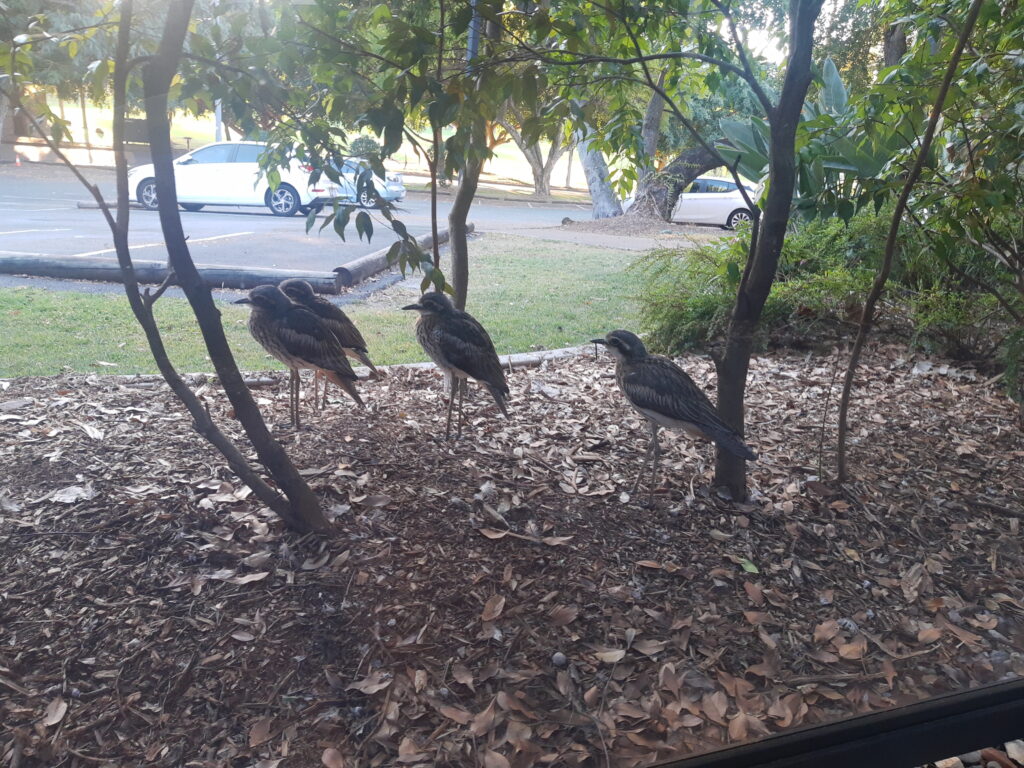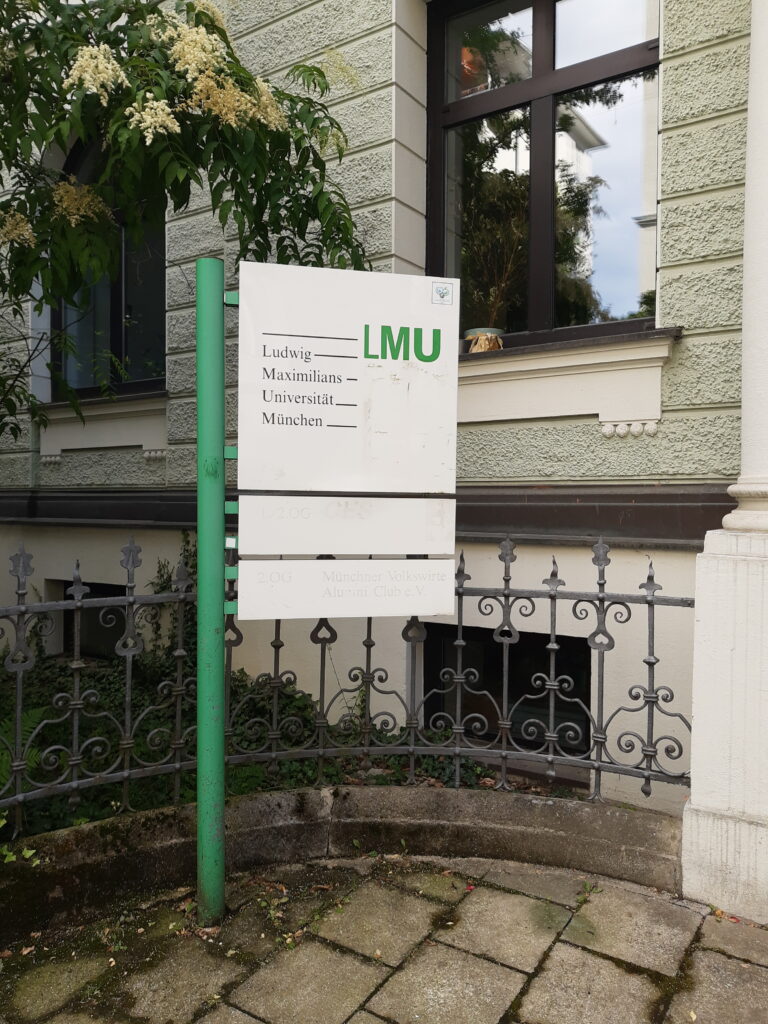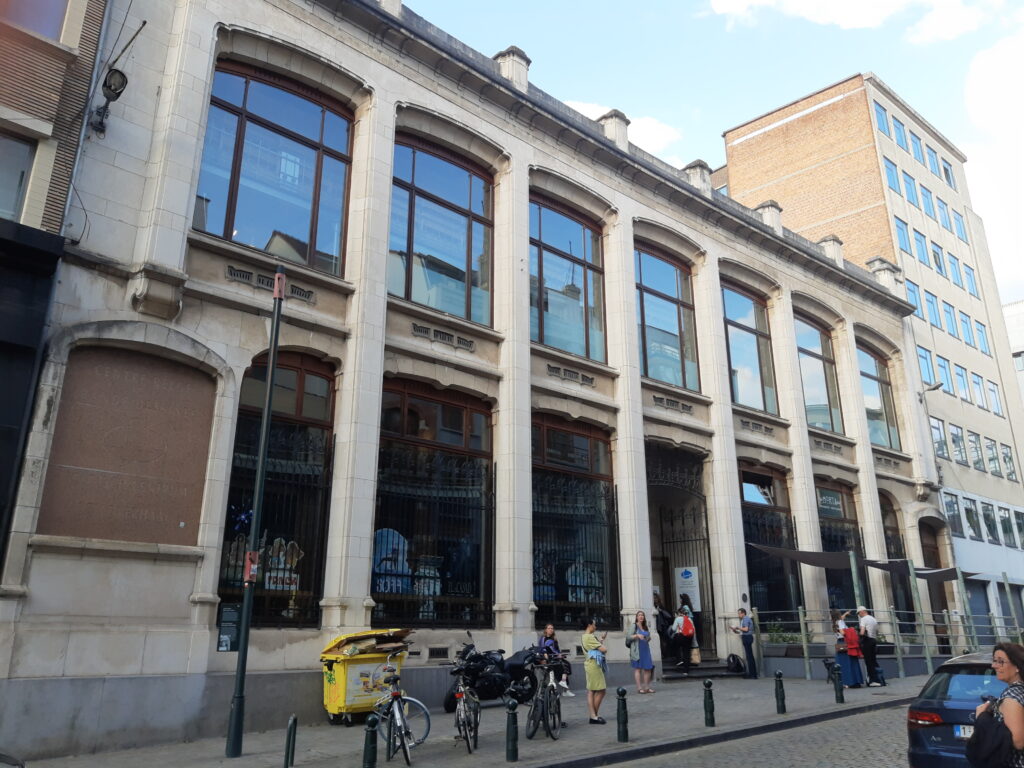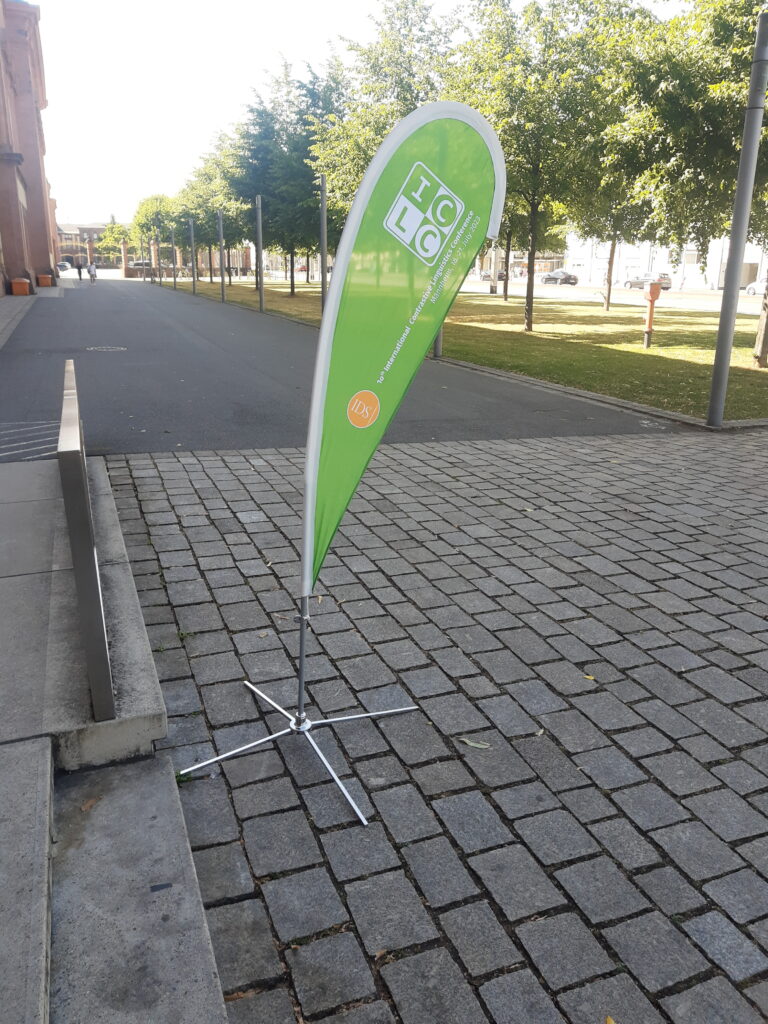Søren Sandager Sørensen
The summer of 2023 was packed with a number of conferences. This included both ICCA 2023, IPrA (aka. IPC18, the 18th international Pragmatics conference), and the International Contrastive Linguistics Conference (ICLC10). There were many more of course (partly due to a post-lockdown effect, I suppose), but I was the lucky participant of exactly these three – which meant that I was travelling abroad for more than a month, as I was not home in Denmark in between any of them!
1. ICCA 2023
I will not say too much about ICCA, as there already is a very detailed account created in collaboration by a number of attendees. ICCA 2023, the 6th International Conference of Conversation Analysis, happened in Brisbane, Australia, at the University of Queensland, and that really was what made my summer a world tour, as the rest took place in Europe. There are still many places in the world I have not yet toured, but that will require some more funding. The conference took place June 26 to July 2, of which the three first days were pre-conference workshops and some other introductory fun on Wednesday.
However, I arrived already on Tuesday June 20, after two days (and three flights…) of travelling from Denmark, having made a plan that included both space for potential delays and jetlag, which turned out to be less of a problem. A bigger problem was adjusting to the Australian winter weather – very cold at night (even indoors) while often pretty hot in the middle of the day, and the sun rising really early, but setting already around 17. In the days before ICCA, I walked around Brisbane, got lost at the Gold Coast, and managed to meet some colleagues, and together we saw the local area. On Sunday, I changed location to the on-campus accommodation, met even more people, and we went for walks together and later food. These days gave me a good understanding of the public transport system and some love for the ferry! Especially the trip to Southbank which became a frequent experience for me.

The workshops were great. On the first day, I participated in the workshop on ”Coding and quantifying social interaction” with Giovanni Rossi, but also learned a different kind of lesson when I went outside with food and was hunted by a very aggressive bird. On the second day, I was in the workshop ”Conversational structures across languages and cultures” with Tanya Stivers. I did not expect the amount of overlap between these two workshops – Rossi contributed during the last part of Stivers’ workshop – but it was all very informative and nicely connected. The last workshop was on ”Preparing field data for conversation analysis” with Joe Blythe and Francesco Possemato, and it satisfied the technology-interested side of me, as we had fun playing around with recording equipment and microphones.
Wednesday was also the day where we went to the Lone Pine Koala Sanctuary. This was a nice day to experience human-animal interaction and meet each other without a conference schedule, and make sure we did not forget to experience Australia outside the campus. The day finished with a nice welcome followed by a welcome reception.
The conference itself went very well. The plenaries were great and represented a range of topics. There is a nice pleasure in being able to assume knowledge about CA among the other conference attendees. I was part of the panel known as ”General Session 16”, which had presentations including a wide range of languages. However, this was placed the day after the night of the cocktail party (formerly known as ”conference dinner”), which took place on the roof terrace of the Gallery of Modern Art, and was a great party with cocktails and dancing. It peaked as the almost-winning Finnish Eurovision entry played, and afterwards, some of us went for ice cream.
After the conference, I did have some time on Monday to see more Brisbane attractions together with a colleague, before leaving by plane in the evening.

However, I did not go home to Denmark just yet – I was going to IPrA soon. Not directly though,as there were a number of days before it would start. Instead, I went to Munich to visit my friend and colleague Rasmus Puggaard-Rode, and stayed there a few nights (which was cheaper than if I went directly to Brussels, even though it meant I had to travel through a city I would have to travel back to later). While there, I visited the Institute of Phonetics and Speech Processing at the Ludwig Maximilian University (LMU), where I managed to listen to a talk that was in German.
2. IPrA
Friday I took trains from Munich to Brussels, where the 18th International Pragmatics Conference (IPC or, more commonly, IPrA) would start the following Sunday, July 9. I spent the Saturday walking around the city center and visiting the tram museum. And while ICCA was big (I think I heard approx. 350 registrations?), IPrA was bigger (approx. 1500 registrations, 200 of which were online)! I had not before been at a physical IPrA conference, but I participated in the 2021 online IPrA, which had its own set of practical issues. The scope of IPrA goes much beyond CA, but there is a lot of it at IPrA – too much to attend all of it, but you could probably go through the conference and only hear about conversations if you really wanted to, and I almost did, but there was so much nice research everywhere. I attended sessions on complex syntax for interaction and referential practices in action, but also communicative practices in online dating, and I was happy I was also able to make it to the session on ”Responses to news: Cross-linguistic perspectives”, which had a topically similar session at ICCA which I unfortunately could not attend in full. My own talk was part of a panel on the ”integration of conversation analytic and other linguistic methods”, and it took up the whole of Tuesday, but brought a lot of perspectives. I almost came too late because I was confused about the building names and did not realize how important the ”U” of building ”UB” was. It both contained people and perspectives I wanted to see again, people I had wanted to meet for some time, and people I did not know that I should meet. I was very happy with the panel, and also think my talk went well. The plenaries were also great and I did not miss any of them!

I managed to go out and eat with people a little bit. I was also happy that I found some people staying at the same hotel as me – a nice place with free access to hot chocolate – which meant we could travel together with the (tightly packed) tram. The conference dinner on Thursday made us visit the Comics Museum, which was really nice, especially the snacks before it. As part of the programme, Wednesday ended early, which allowed for other activities, but I was simply too tired at that point!
3. ICLC
IPrA ended on Friday, and I left on Saturday for a bus to Mannheim, where the 10th International Contrastive Linguistics Conference (not to be confused with the other ICLC – the International Cognitive Linguistics Conference, which I was not going to attend) was about to take place July 18th-21st. In the days before the conference, I had time to visit the Technoseum, Bundesgartenschau and Kunsthalle – which I later discovered were the exact three things recommended on the conference website – and do a little bit of networking. My German was finally put to use again, and not as rusty as I had feared.

I was very excited about attending this conference, since it was now some time since I had last attended a conference with focus on other aspects of linguistic description than interactional or pragmatic aspects. This conference combined both, with panels dedicated to e.g. interaction and multimodality. However, my linguistic interests were aligned so that I missed out on the multimodality ones – but any panel I went to was interesting and full of insights! It was really great to connect with some of the interests I had to put aside when I had to prioritize the focus of my PhD.
The conference dinner took place on Thursday, just like my talk, and both facilitated long discussions with old and new colleagues. ICLC ended with a nice, guided tour of the city Friday evening. However, at this point I was extremely tired and just looking forward to get home the next day.
4. In conclusion
I have come to the conclusion that I was the only one who attended all these three conferences (let me know if I was wrong!), but many people attended 2 of the same conferences. The amount of travelling was very tough – I am glad I could do without flying within Europe for a number of reasons, but the trains and buses were also not always peak comfort. The many changes and variation in conditions of sleep and transport did take away energy over time. It was worth it, but I hope to be able to participate in online conferences for the next while before doing this amount of travelling.
Attending so many conferences also adds an extra layer to the discussions at conferences where we assess said conference. What makes a good conference dinner? How should a program look? Why do conferences cater so much to drinkers of coffee and tea, but not hot chocolate? All these issues are opened during breaks. I felt like I spent the first two conferences complaining about the amount of food at the conferences, only for me to eat so much that I was in pain, when the last conference finally offered an actual all-you-can-eat buffet.
The practical circumstances also varied a lot. I was positively surprised by how well the ICCA app worked. The badge scanning functionality actually turned out to be useful. Only minor problems were the clicks it took to see the talk titles, which made it difficult to get an overview of what was in overlap with what, and to get the abstracts. IPrA did provide a nice PDF with all abstracts in one file, and there was also a physical program booklet, but the layout it uses makes it almost impossible to navigate and figure out what is in overlap with what. The remote participation system seemed to play a role in a number of problems. I was happy to have a recording of my own talk, but it sounds slightly distorted. ICLC used EasyChair (combined with a PDF of all abstracts), which turns out to have a function to generate programs, which was very practical for getting an overview of overlapping talks (but note that this conference also had the fewest overlapping sessions at any time).
But the most engaging aspect was the experience of the variation in approaches. Sometimes, I feel like I am placed in a narrow CA bubble that implements next turn orientation in a very specific way, but conferences like these show you how much variation in method there can actually be, and it makes you reflect on what you would like to try in the future and why you have done things the way you did. Another internal conflict in me is the one between the linguist (not just interactional linguist) and conversation analyst inside me, but the combination of linguistic and interaction topics at these conferences were exactly what I had hoped for; especially the keynotes by Joe Blythe, Mark Dingemanse and Elwys De Stefani provided insightful perspectives relevant for the linguist(s) inside me – but all the other plenaries were also very giving in many ways!
In summary, participating in conferences is great both for meeting colleagues and for being challenged and inspired to reflect – but be mindful of just how much travelling you can survive!
